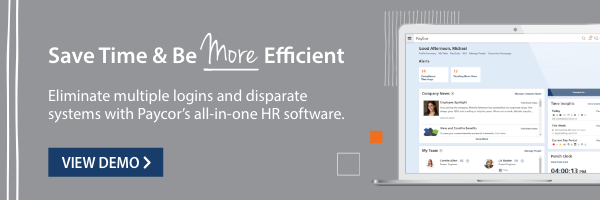Whether you’re a seasoned HR veteran or a newcomer, familiarizing yourself with various negotiation strategies can make a world of difference when it comes to conversations about salary.
And, you can almost expect employees to negotiate salary, if not at the start of their journey, then definitely at some point in their career.
55% of candidates negotiated salaries for their last job offer
-Robert Half
But, when you’re prepared, it will be easy for you to balance employee expectations with your organization’s budget, while ensuring you adhere to necessary legal considerations. Fortunately, we can help with this.

Relate: How to Establish Salary Ranges
Why Is Salary Negotiation Important?
These days, salary negotiation is just as important for HR leaders as it is for employees. Not only can the right conversation attract high-quality talent, but it can also be instrumental in retaining current employees. Nothing says, “We appreciate you” more than fair compensation. Employees who feel valued for their contributions are much more likely to stay.
Negotiations also provide an avenue to address and rectify pay disparities; not only to ensure compliance with pay equity laws, but also to foster an environment of fairness within the organization.
General Negotiation Strategies HR Leaders Should Know
The art of negotiating salary and other compensation benefits lies in a balanced blend of comprehensive market research, adaptability, and genuine empathy. Effective negotiation is not an innate skill, but rather, it’s learned, honed, and perfected over time. As such, it can be very beneficial for HR professionals to invest in negotiation training, specifically designed with practical, scenario-based learning opportunities. It enables them to practice and refine their skills in a safe environment before applying them in real-world situations.
Moreover, training in negotiation can instill a greater understanding of the emotional and psychological aspects of negotiation. This insight is critical in fostering positive relationships with employees, which, in turn, improves employee satisfaction and retention. Here are some general negotiation strategies that every HR leader should know:
- Preparation: Know your goals and the other party’s potential needs before negotiating.
- Relationship Building: Establish a positive rapport with the other party to facilitate smoother discussions.
- Active Listening: Understand the needs and concerns of the other party by listening attentively.
- Objective Criteria: Use facts and data to support your position and arguments.
- Option Exploration: Consider various alternatives that could satisfy both parties.
- Clear Communication: Express your needs clearly and respectfully.
- Win-Win Approach: Aim for an outcome that benefits everyone involved.
- Patience: Take the time necessary to reach a thoughtful agreement.
- Know When to Walk Away: If a satisfactory agreement isn’t possible, be prepared to end negotiations.
Legal Considerations For Negotiating Salary
Navigating the legal landscape during salary negotiations is just as important as understanding market dynamics. Most recently, salary history bans, which outlaw questions about previous compensation, and pay transparency laws have changed the salary negotiation process for a number of businesses.
Additionally, HR leaders must also be mindful of laws relating to pay equity, discrimination, and confidentiality to ensure fairness and compliance. For instance, legislation like the Equal Pay Act and Title VII prohibits pay discrimination on the basis of gender, race, color, religion, or national origin.
10 Tips to Prepare for Salary Negotiations
Before getting started, HR leaders need to be aware of competitive salary rates in their industry, remain open to feedback and adjustments, and value the prospective employee’s worth. Here are 10 additional tips to keep in mind.
- Research Market Rates: Be sure you understand the market value of the position and the skills, experience, and qualifications the candidate possesses.
- Make Sure You’re Clear on Candidates’ Expectations: Have a clear understanding of what the candidate expects in terms of salary and benefits. This will help set the framework for the negotiation.
- Prepare Your Approach: Develop a strategic approach to salary discussions. Demonstrate the value of the role and the fairness of your offer.
- Ask for Specifics: Encourage candidates to be specific about their salary expectations. This can make the negotiation process smoother and more efficient.
- Present the Total Compensation Package: Educate candidates about all the components of the total compensation package. Highlight benefits like flexible work schedules, health benefits, and professional development opportunities that add value beyond the base salary.
- Prioritize Transparency: Be prepared to discuss and justify any adjustments to the initial salary package. Be clear about salary expectations and the reasoning behind your offer. This openness can build trust and promote a better understanding between all parties.
- Do Your Homework: Thoroughly understand the job role, market trends, and candidate’s history. The more informed you are, the more effectively you can negotiate.
- Know Your Limits: Be aware of your budgetary constraints and communicate these when necessary. It’s essential to manage expectations realistically.
- Personalize the Process: Treat each negotiation as a unique conversation, not just a transaction. Show empathy, be candid, and create a positive environment that respects the candidate’s perspective.
Using these strategies, HR professionals can negotiate salary packages effectively, striking a balance between the candidate’s expectations and the organization’s financial constraints.
Don’t Forget About Benefits
Providing perks like educational reimbursements, mentorship programs, career enhancement courses, childcare support, health and wellness incentives, and flexible work hours could hold greater appeal than a substantial salary for certain individuals. Sometimes this is even more important when you have a remote-first workforce.
How Paycor Helps
When employees know they’re valued, they are more likely to go the extra mile for you. Attract top talent and show your appreciation for their dedication and hard work with open, transparent salary conversations. Paycor’s Compensation Planning and Reporting and Analytics Tools can help.










